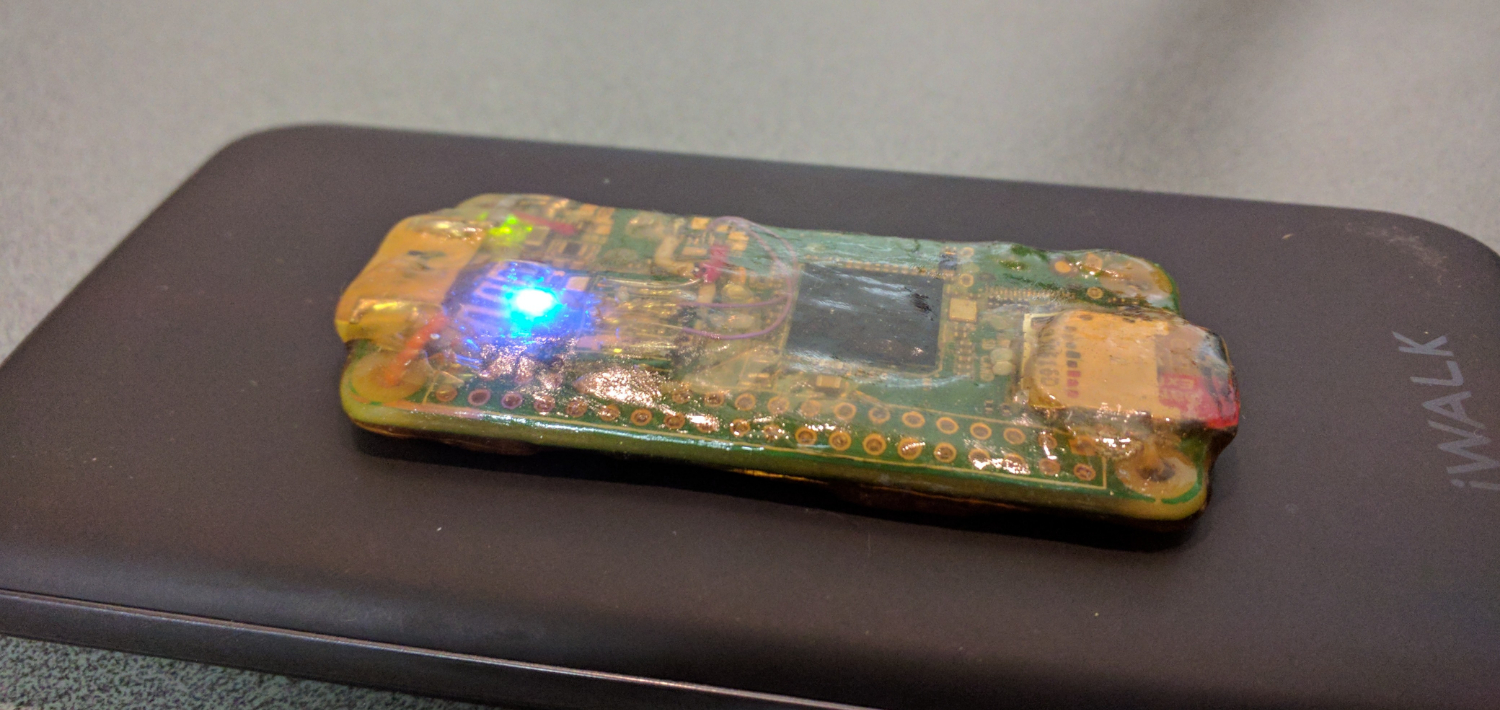PegLeg Implants Raspberry Pi Zero Ws in Humans
We've heard of people doing strange things with single-board computers. Using a Raspberry Pi Compute Module 3 Lite to make an open-source tablet? Sure. Filling a server rack with hundreds of Raspberry Pi 4 units? Go for it. PegLeg goes a step further--pun intended--by allowing people to become their own portable networks by implanting a Raspberry Pi Zero W in their bodies. That's right: the biohackers are Raspberry Pi enthusiasts, too.
Hackaday reported on the second iteration of PegLeg on August 29. It sounds like the initial version was a bit unwieldy; Hackaday compared it to an Altoids tin. The second iteration ditched every non-essential aspect of the device, such as its USB ports, and replaced the battery with a Qi coil that enabled wireless charging from outside the body. It also switched from using a wireless router's mainboard to using the Raspberry Pi Zero W.
The first version of PegLeg was only implanted in one person, who goes by Lepht Anonym, but the second was implanted in three. (Lepht, Cass and Mixæl Laufer. Probably not their real names.) Hackaday's report contains more information about the implantation process--with pictures!--so anyone interested in the biohacking aspect of this project should check it out. We'll focus on the aspects that are a little bit less... wet.
PegLeg runs PirateBox, which according to its website is "a DIY anonymous offline file-sharing and communications system built with free software and inexpensive off-the-shelf hardware," to create a meshable network. That means anyone could theoretically connect to the Raspberry Pi Zero W to participate in anonymous chat, file sharing and the like. This would be useful if, say, law enforcement agencies shut down other messaging platforms.
Hackaday said that work has already started on the next version of PegLeg. Its creators hope to get the device's size down to that of a postage stamp, which should make the implant far less daunting, and they would eventually like to draw power directly from the human body. More information about PegLeg can be found on the project's website, just in case any of you are thinking about becoming Pi-ohackers yourselves. (We couldn't resist.)
Get Tom's Hardware's best news and in-depth reviews, straight to your inbox.

Nathaniel Mott is a freelance news and features writer for Tom's Hardware US, covering breaking news, security, and the silliest aspects of the tech industry.
-
mdd1963 You will be...assimilated. We will add you distinctiveness to our own.Reply
Resistance is futile.
